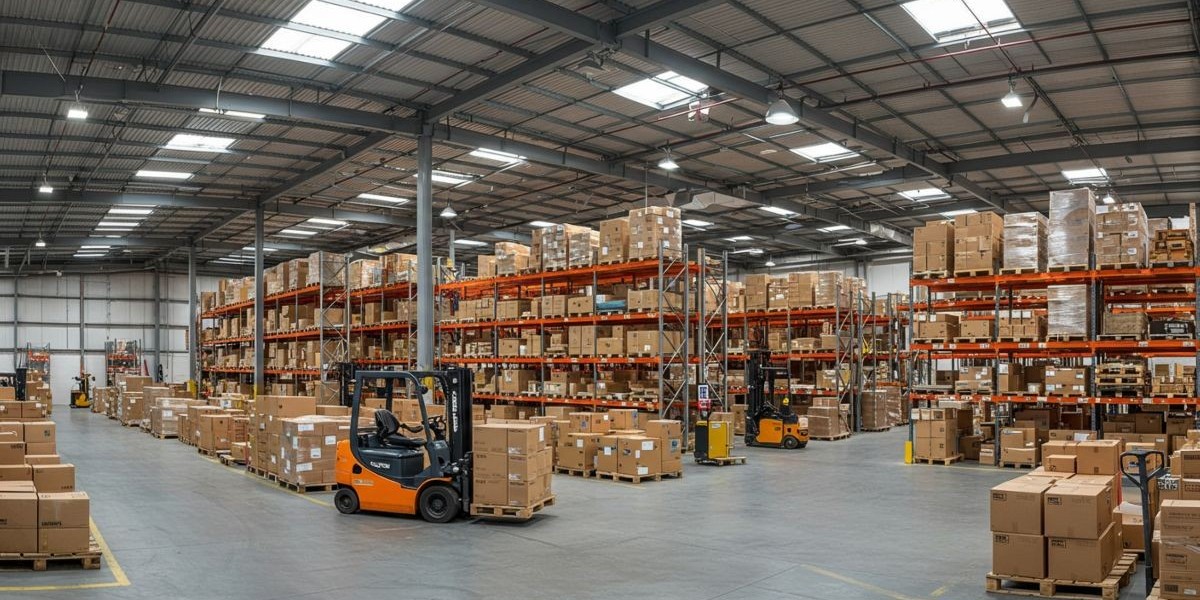In today’s fast-paced economy, businesses must manage the complex movement of goods across regions, industries, and customer expectations. The demand for faster, more reliable, and cost-efficient logistics has led to the rise of third-party logistics, commonly known as 3PL. Whether you are a growing e-commerce company, a manufacturer with nationwide shipments, or a retailer managing seasonal surges, understanding the role of 3PL is crucial.
This guide explores what 3PL means, how it works, and why it has become the backbone of modern supply chain strategies.
Defining Third Party Logistics
Third-party logistics refers to outsourcing your supply chain operations to specialized providers who manage transportation, warehousing, distribution, and freight coordination on your behalf. Instead of building and maintaining in-house logistics networks, companies rely on 3PL services to streamline processes, reduce costs, and improve efficiency.
From handling day-to-day shipping schedules to negotiating with carriers, 3PL providers bring expertise, technology, and established networks that many businesses find more scalable than internal solutions.
How 3PL Works in Modern Supply Chains
A 3PL provider becomes an extension of your business operations by coordinating freight transportation, tracking shipments, and optimizing storage. They integrate with your sales or order management systems to ensure orders move seamlessly from fulfillment centers to customers.
For example, if your business needs flatbed freight shipping for oversized loads, a 3PL partner manages the scheduling, ensures compliance with regulations, and arranges delivery through trusted carriers. This kind of specialized support eliminates delays and reduces the risks of handling complex shipments.
The Benefits of Outsourcing to 3PL
Outsourcing logistics has become a strategic choice for companies of all sizes. The major benefits include:
Cost Reduction and Efficiency
3PLs leverage their carrier relationships and volume-based discounts to offer better pricing than most businesses can achieve independently. Lower shipping rates, reduced overhead, and improved resource allocation allow companies to scale without excessive investment.
Access to Freight Expertise
From compliance with transportation regulations to specialized delivery methods like flatbed truck delivery service, 3PL providers offer industry expertise that ensures accuracy and timeliness.
Scalability and Flexibility
During peak seasons, such as holidays or product launches, a 3PL can quickly scale up to manage higher volumes. When demand slows, services can scale back without leaving businesses stuck with fixed logistics costs.
Advanced Technology
Most 3PLs utilize sophisticated tracking and reporting systems that provide real-time shipment visibility. This transparency helps companies plan better, improve customer communication, and make data-driven decisions.
Types of 3PL Services
Third-party logistics is not one-size-fits-all. Providers offer tailored solutions depending on the complexity of the supply chain.
Transportation Management: Coordinating carriers, negotiating rates, and ensuring timely freight movement.
Warehousing and Distribution: Managing inventory, storage, and order fulfillment.
Specialized Freight Solutions: Handling unique needs like oversized loads, perishable goods, or high-value shipments.
Businesses often choose a partner offering a full range of freight solutions so that they can manage everything under one umbrella.
The Role of Freight Brokers
Freight brokers act as intermediaries between shippers and carriers. A freight broker Texas provider, for example, connects businesses with qualified carriers in the region, ensuring loads are transported efficiently. These brokers not only negotiate better rates but also provide access to networks of vetted drivers and equipment.
In many cases, freight brokers are integrated into a 3PL framework, offering businesses a seamless way to handle both domestic and cross-regional shipments.
Why 3PL Matters in a Competitive Market
Customer expectations are higher than ever. Businesses are no longer competing only on product quality or price but also on the ability to deliver quickly and reliably. Outsourcing to a 3PL ensures that companies can stay competitive by offering fast shipping, accurate tracking, and consistent delivery experiences.
Moreover, 3PL services reduce risks associated with supply chain disruptions. By relying on providers with strong industry connections and flexible resources, businesses can adapt more effectively when challenges like weather delays, fuel price changes, or regulatory shifts arise.
Choosing the Right 3PL Partner
Selecting a logistics partner is one of the most critical decisions for any business. Factors to consider include:
The provider’s network and ability to handle nationwide or regional shipping.
Experience with specific transportation needs, such as flatbed freight shipping or refrigerated loads.
Transparency in pricing, service agreements, and technology integration.
Proven track record in managing scalable supply chains.
The right partner should not just deliver freight but also align with your long-term business goals.
Conclusion
Third-party logistics has evolved into a cornerstone of efficient, scalable, and customer-focused supply chains. By outsourcing logistics operations to experts, companies can focus on core activities while ensuring reliable delivery performance.
From specialized flatbed truck delivery services to advanced freight solutions, 3PL providers provide businesses with the tools they need to grow in a competitive market. Whether you are an e-commerce startup or a nationwide manufacturer, integrating 3PL services into your strategy can redefine how you move products and serve customers.
FAQs on 3PL and Third-Party Logistics
What does 3PL mean in logistics?
3PL stands for third-party logistics, which involves outsourcing supply chain operations such as transportation, warehousing, and distribution to specialized providers.
What is the difference between 3PL and freight brokers?
A 3PL offers a wide range of logistics services, while freight brokers primarily connect shippers with carriers. Many 3PLs also integrate freight brokerage.
Can 3PL providers handle flatbed shipments?
Yes, many 3PL providers offer flatbed freight shipping, which is ideal for oversized or heavy loads that require specialized equipment.
Is 3PL suitable for small businesses?
Absolutely. Small businesses benefit from 3PL by accessing expertise, reducing overhead, and scaling logistics capabilities without building costly infrastructure.
What industries rely most on 3PL?
Retail, manufacturing, e-commerce, automotive, and healthcare industries are among the largest users of third-party logistics due to their complex and high-volume supply chains.






